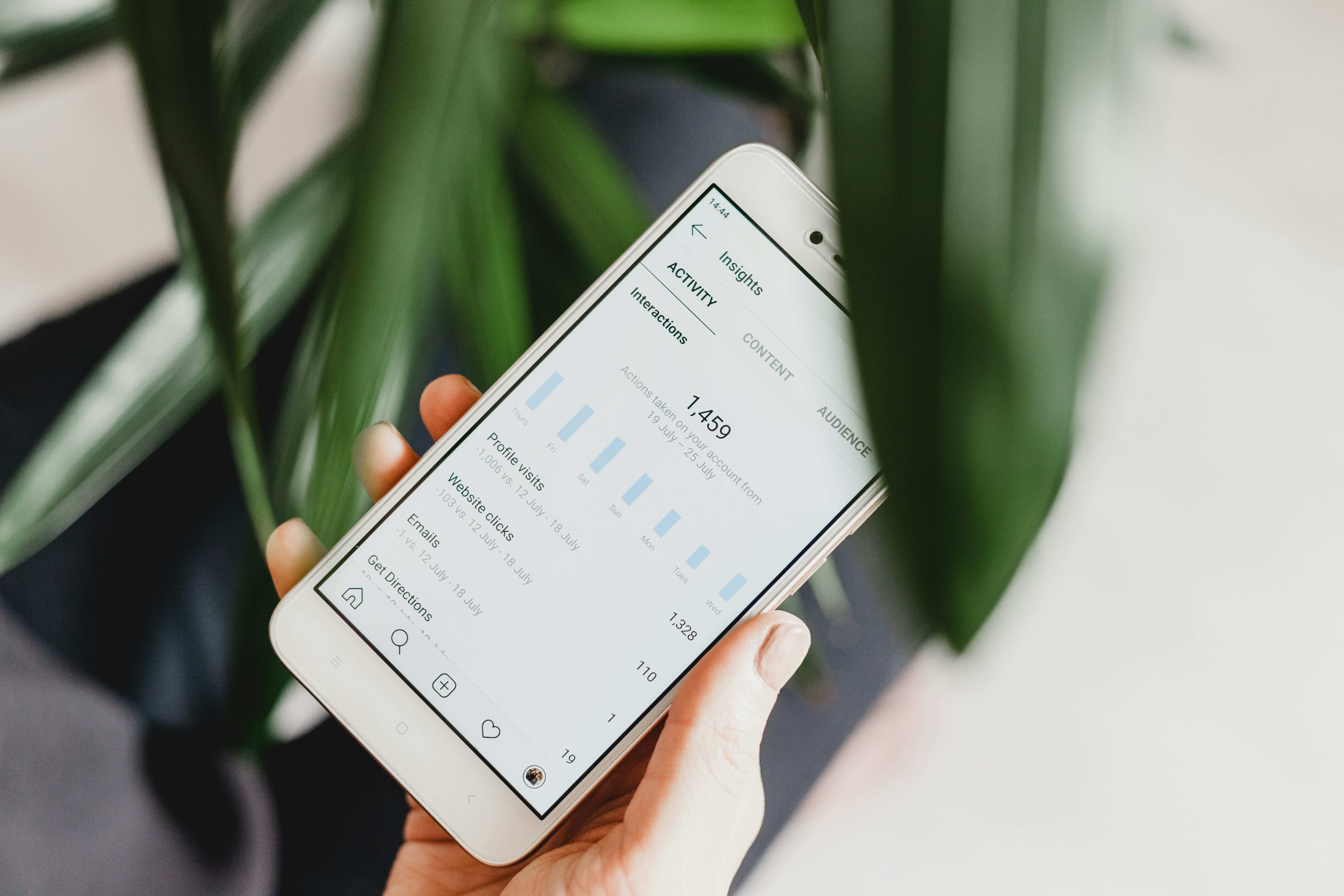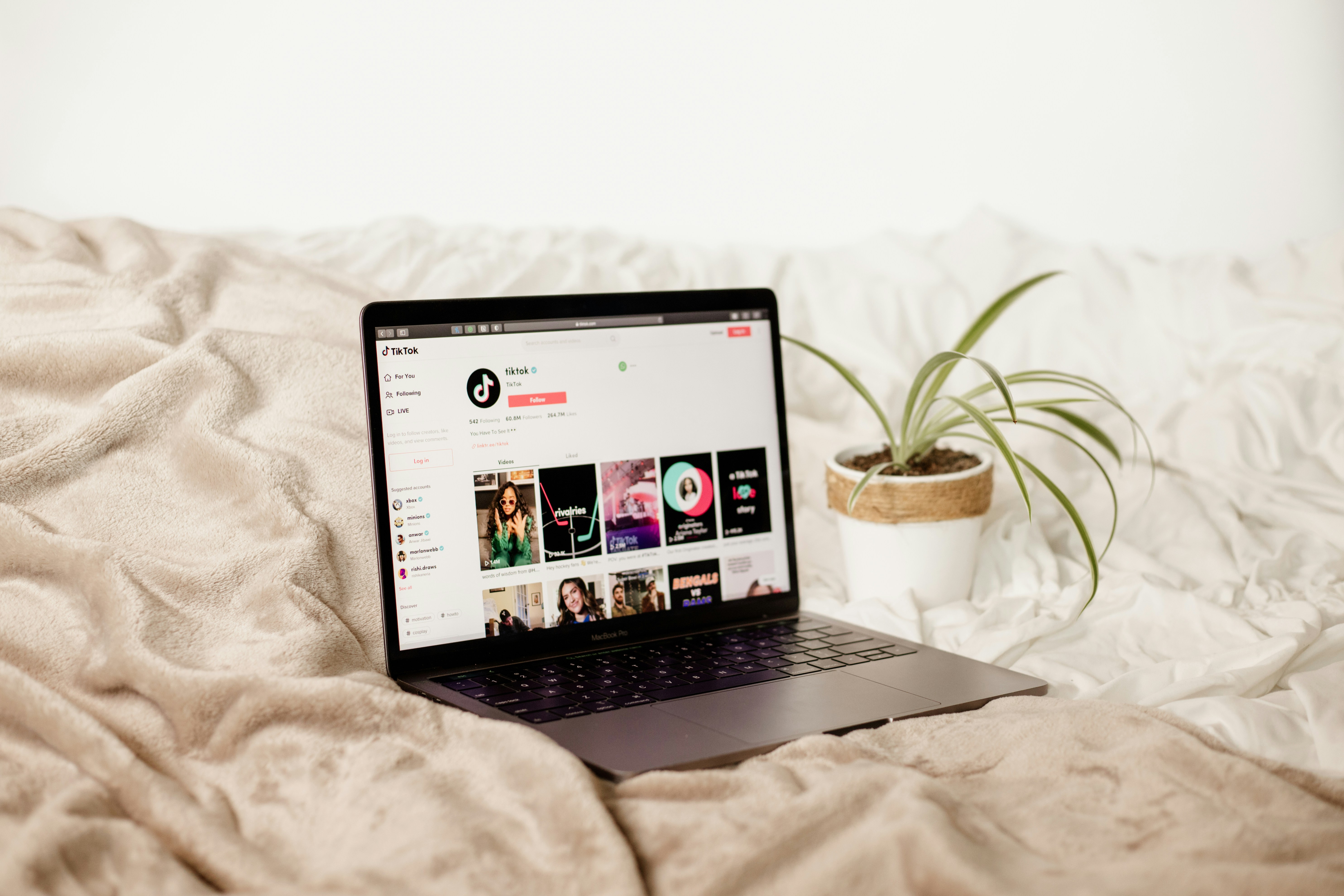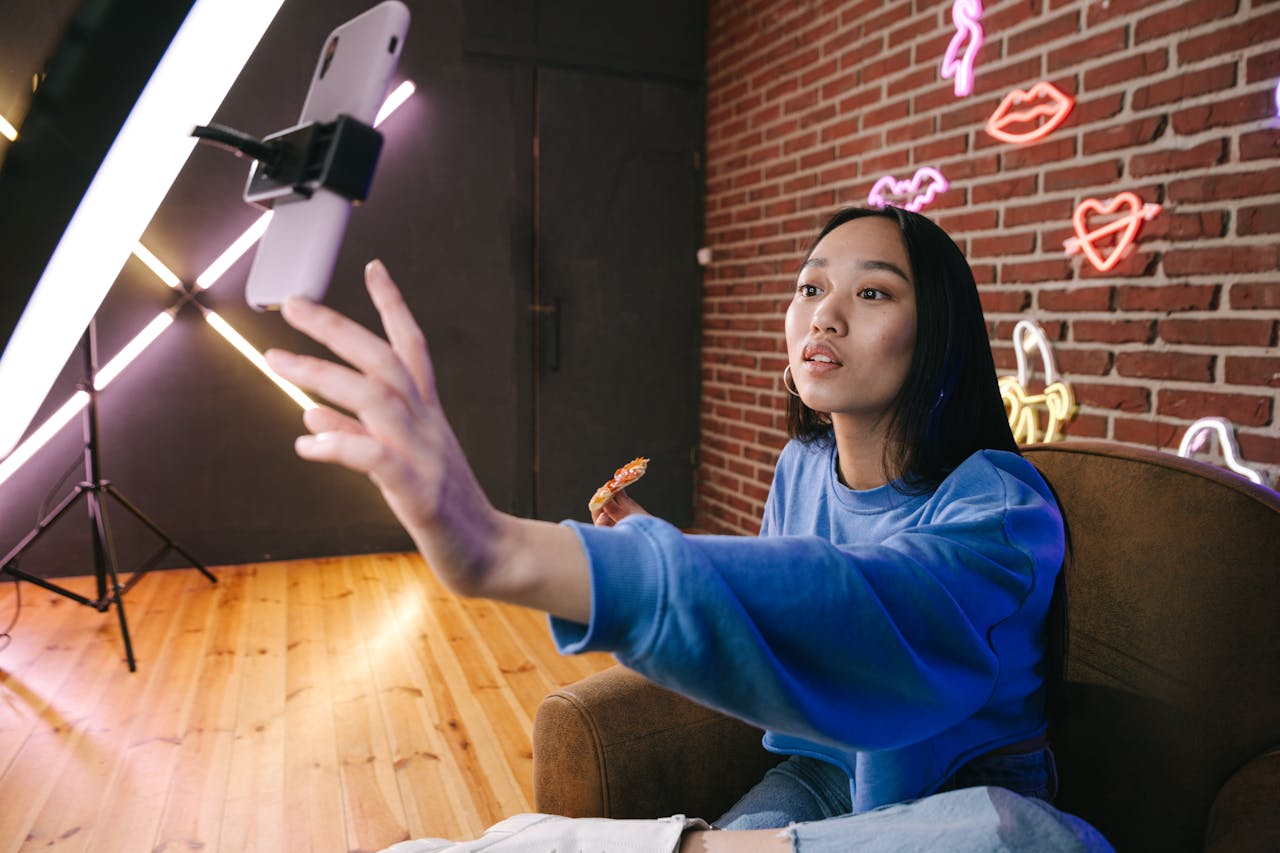
Influencer Marketing Campaigns: Who Should You Collaborate With?
06 Aug, 20249 minsDigital advertising and marketing are constantly changing, meaning it can take time to deter...

Digital advertising and marketing are constantly changing, meaning it can take time to determine which strategies are the most effective for your business. While initially a trend, influencer marketing campaigns have dominated social media platforms and, over time, stayed constant, if not increasing, in popularity.
As businesses observe the rise in influencer collaborations on social media and among competitors, it's essential to grasp influencers' role in your business strategy. Understanding the diverse spectrum of influencers in marketing and advertising is critical before your business jumps onto the influencer marketing campaign bandwagon.
In this guide, we'll explore the different types of influencers, offering detailed insights into their categorisations and outlining how each type can best support your business objectives.
Understanding the Influencer Market in 2024
Influencer marketing has become essential for business growth strategies in today's digital world. With influencer collaborations, brands tap into trusted voices to guide consumers' purchasing decisions. Influencers, with their engaged followings, offer a direct path to targeted audiences.
This approach is practical, with the global influencer marketing industry estimated to reach over $24 billion. Influencer marketing enables brands to engage with communities authentically, bypassing traditional advertising barriers. By incorporating influencer marketing campaigns into their business growth strategies, businesses create impactful campaigns that resonate and drive results.
Is an Influencer the Same as a Content Creator?
You may have wondered whether partnering with an influencer is comparable to collaborating with a content creator. While there are similarities between the two, they occupy distinct roles in the digital sphere and the world of marketing.
No, they're not the same. Influencers use their online presence and social influence to shape opinions and endorse products, influencing consumer behaviour. On the other hand, content creators are focused on crafting engaging and compelling content across various platforms, aiming to entertain, inform, or inspire their audience.
Picture a popular YouTuber who recommends products in their videos (influencing) and dedicates time and creativity to producing entertaining or informative content (content creation). Understanding the differences between influencers and content creators is crucial for businesses seeking to harness the power of digital marketing effectively.
Now, let's explore this further by identifying the different types of influencers to understand how they each uniquely shape brand perception and drive consumer engagement.
Types of Influencers: Which Approach is Right for Your Business?
Influencers are typically trusted and can be significant assets to your subsequent digital media campaigns and strategies if you can create a successful partnership, which means success for your business. However, not every influencer will suit your business, so brands must understand the different influencers to work with and how each type can benefit business activity. Let’s explore this further:
Differentiating Influencer Type By Follower Volume
The most common way businesses and the marketing world understand influencers is by categorising them by the number of their social media following. This approach provides a straightforward framework for assessing an influencer's reach and potential impact on their audience.
By categorising influencers according to follower volume, businesses can tailor their marketing strategies to target different audience segments and achieve their marketing objectives effectively.
Nano Influencers (1k—10k followers)
Nano influencers may have smaller followings, but their impact is profound. They intimately understand their niche and support genuine connections with their audience. Their recommendations carry significant weight, often leading to higher engagement rates and authentic interactions.
For businesses, partnering with nano influencers offers an opportunity to tap into highly targeted audiences and benefit from their genuine advocacy. Statistics show that nano influencers typically maintain higher engagement rates than more significant influencers, making them valuable allies for niche campaigns requiring authenticity and grassroots support.
Micro-Influencers (10k – 100k followers)
Micro-influencers represent a diverse group with substantial influence within their respective niches. Their follower counts may be higher than nano influencers, but they maintain the authenticity and engagement that characterise smaller influencers. Micro-influencers are perceived as more relatable by their followers, promoting trust and credibility in their recommendations.
Brands partnering with micro-influencers can leverage their influence to drive targeted engagement and create authentic brand experiences. Research indicates that campaigns with micro-influencers can achieve engagement rates up to 7 times higher than those with macro-influencers, meaning they can help businesses establish a loyal following group.
Macro Influencers (100k—1 M followers)
Macro influencers command significant attention in the digital world, holding sizable followings and broad reach. While they may not match the engagement rates of smaller influencers, their influence extends across diverse audience segments. Collaborating with macro influencers enables brands to amplify their message and increase brand awareness on a larger scale.
Macro influencers are particularly effective in industries where mass appeal and visibility are crucial, such as fashion, beauty, and lifestyle. However, brands should carefully consider their marketing objectives and audience demographics when partnering with macro influencers to ensure alignment with their overall strategy. Statistics suggest that macro influencers typically maintain engagement rates ranging from 2% to 5%.
Mega Influencers (1M+ followers)
Mega influencers, often synonymous with celebrities and social media icons, wield immense influence and reach. Their massive followings transcend traditional influencer boundaries, providing brands unparalleled exposure and access to diverse audiences. However, partnering with mega influencers comes with significant costs and considerations.
While the potential reach is substantial, brands must weigh the associated expenses against their marketing objectives and budget constraints. Additionally, the audience of mega influencers may be less segmented and more generalised, posing challenges in targeting specific demographics effectively. Statistics indicate that mega influencers typically maintain engagement rates averaging around 1% to 3%.
Whether aiming for niche engagement or broad brand visibility, partnering with influencers aligned with business objectives can drive meaningful results and enhance overall campaign effectiveness.
Differentiating Influencer Type By Industry
Choosing the right influencer for your influencer marketing campaign is essential for a successful partnership and the success of your business growth strategies. Your business and the influencer must share common ground to ensure mutual benefits. If the influencer has amassed a following within a specific industry, your products or services must align with that niche to maximise the impact of your collaboration.
For instance, if your business specialises in gaming technologies, partnering with a beauty influencer, no matter how large their following, may not generate the desired results as their audience may not be interested in gaming technologies.
To identify suitable influencers, categorise them based on their industry or the primary interests of their followers. Most influencers openly declare their niche, making it easy to discern. If alignment is not explicitly stated, explore their content and audience demographics to gauge alignment.
Reputable influencers typically specialise in one or two related industries to maintain a loyal and engaged following. Common industries influencers cater to include:
- Fashion
- Gaming
- Technology
- Travel
- Family
- Animals
- Lifestyle
- Food
Partnering with influencers within your industry can significantly enhance your marketing efforts and drive better results by reaching a highly targeted audience interested in your offerings.

Differentiating By Choice of Social Media Platform
It's a common misconception to believe that all influencers hold the same influence across every social media platform. Each platform attracts a distinct audience with unique preferences and behaviours. Consequently, when it comes to aligning influencers with your business objectives, the choice of platform is essential.
Social media platforms and streaming services operate in diverse ways, offering businesses varied opportunities to connect with their target audience. Not only does influencer marketing campaign reach depend on the influencer's following on these platforms, but each platform also specialises in catering to different interests across various age groups.
Influencers typically maintain a presence on multiple platforms to maximise their reach while developing a dedicated community. For instance, platforms like Twitch and LinkedIn cater to distinct demographics and serve specific purposes. LinkedIn, traditionally known for professional networking, is an ideal platform for businesses targeting professionals and seeking to shape company perception or enhance brand awareness within the professional services sector.
Conversely, platforms like Instagram and TikTok appeal to younger, more visually oriented audiences, making them suitable for fashion, beauty, and consumer goods businesses.
Influencer marketing on Instagram is effective because it's all about visuals and has a diverse audience. Instagram is known for its visually appealing content, making it ideal for showcasing products and lifestyle brands through images and videos. With its primarily youthful user base, Instagram attracts a wide demographic range, providing businesses ample opportunities to connect with their target audience.
Collaborating with Instagram influencers allows businesses to tap into this visually driven platform, engage with followers, and increase brand awareness and sales.
Youtube
YouTube supports a massive audience and diverse content offerings, making it a prime platform for influencer collaborations. As a video-sharing platform, YouTube allows influencers to create detailed, informative, and entertaining content catering to various interests and demographics.
Whether they post product reviews, tutorials, or vlogs, YouTube influencers have the flexibility to engage with their audience in meaningful ways. Businesses can leverage the platform's extensive reach by partnering with YouTube influencers, driving brand engagement and establishing credibility within their niche.
TikTok
TikTok's short, engaging videos have transformed influencer marketing campaigns, especially among younger audiences. TikTok is known for its viral challenges, trends, and creative content, providing influencers a platform to showcase their personality and creativity.
With its primarily Gen Z audience, TikTok allows businesses to connect with a youthful demographic in a fun and authentic manner. Collaborating with TikTok influencers allows businesses to participate in trends, create engaging content, and encourage brand loyalty among their audience.
LinkedIn is essential for B2B businesses targeting professionals. Unlike other social media platforms, LinkedIn focuses on professional networking, career development, and industry insights. LinkedIn influencers are typically industry experts, thought leaders, or business professionals who share valuable content related to their field.
By partnering with LinkedIn influencers, businesses can position themselves as industry leaders, reach decision-makers, and establish credibility within their niche. LinkedIn is particularly effective for businesses looking to drive thought leadership, generate leads, and build relationships within their industry.
Streaming Services
Twitch influencers hold a lot of sway over their audience in the gaming world. Twitch is a live-streaming platform primarily focused on gaming, esports, and creative content. Twitch influencers, known as streamers, engage with their audience in real-time through live gameplay, commentary, and interactive chats.
With its predominantly young and tech-savvy audience, Twitch offers businesses the opportunity to connect authentically and engage with gamers and enthusiasts. Collaborating with Twitch influencers allows businesses to integrate their products or services into live streams, sponsor gaming events, and reach a highly engaged audience of gamers.
In summary, influencer marketing relies on influencers who have followings on these platforms. By understanding each platform's unique features, strengths, and audience demographics, businesses can strategically partner with influencers to reach their target audience, drive engagement, and achieve success with influencer marketing campaigns.
Influencer Marketing Campaigns: Wrapping up on Influencer Types
Influencer marketing has evolved into a powerful tool for brands to authentically connect with their target audience. Understanding the nature and structure of influencers is crucial for maximising the impact of marketing efforts. From nano to mega influencers, each category offers unique advantages depending on the campaign's objectives. Aligning influencers with the right industry and social media platforms is essential for success.
By prioritising quality collaborations over quantity and supporting long-term partnerships, brands can enhance credibility and trust, ultimately bolstering brand authority. As businesses navigate influencer marketing, strategic decisions tailored to their audience and goals will drive impactful outcomes. Embracing the nuances of influencer types, industries, and platforms, brands can unlock the full potential of influencer marketing, driving engagement and achieving tangible results.
Experts in Digital Marketing Recruitment Solutions
At Sphere, we excel in digital marketing recruitment. Whether you're a company seeking skilled professionals for your direct-to-consumer (DTC) marketing initiatives or launching a new influencer marketing campaign, our consultants are ready to assist you.
Contact us today to discover how we can enhance your talent acquisition strategy or help you advance in your career by staying updated on the latest digital marketing trends, including influencer marketing.



